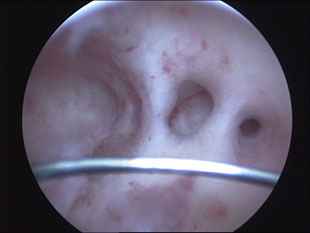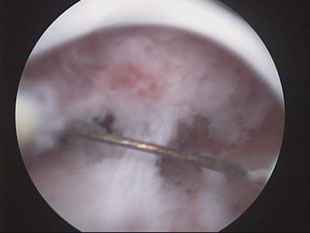Back Pain from Endometriosis
I'm wondering if endometriosis could explain my back pain. I have had back pain for at least 15 years, and it is always just before my period. It has been getting worse over the last two years. Lately I've had severe pain in the lower back, sometimes up to 10 days before my period is due. The pain is sciatic, and was so bad this month that I was crying from the pain and dragging my leg, as it was too painful to lift it.
Usually the pain is gone by the second day of my period. My periods only last four to six days and are heavy the first two days only. Could this be a sign of endometriosis? If so, exactly how does endometriosis cause back pain? How can I find out if that's what's happening with me, and is there anything that can be done? J.R.
Endometriosis is one of the most frequently misdiagnosed medical conditions. The confusion arises because endometriosis is a masked villain and can cause symptoms involving the bowel, bladder, lungs or musculoskeletal systems. In fact, the wide variety of initial symptoms means that women with this problem, on average, suffer nine years of delay in diagnosis and visit more than four physicians.
While the most frequent complaint of endometriosis is pelvic pain preceding the period, low back pain radiating into the buttock and upper thigh is not all that uncommon. Studies have shown that endometriosis can directly invade the sciatic nerve (which serves the leg) and also that general pelvic inflammation and muscle spasm due to endometriosis may cause sciatic-related pain.
The best way to diagnose endometriosis is with a surgical procedure called laparoscopy, which involves inserting a miniature viewing device and other instruments through tiny slits in the abdomen. This enables the doctor to look directly at the internal organs. But we don't want to run to surgery for each episode of pelvic pain. So some preliminary steps ought to be considered.
First, your doctor should carry out a comprehensive medical history and thorough physical examination. You should also consult with an orthopedic physician to rule out musculoskeletal causes of your symptoms. The next step would be a trial of medical therapy. A combination of birth control pills and non-steroidal anti-inflammatory medications -- such as ibuprofen or one of the newer more potent ibuprofen replacements such as rofecoxib or celecoxib -- may offer relief. Some physicians prefer to consider a course of a GnRH-agonist such as leuprolide for a period of three or four months before considering surgery.
If you experience considerable improvement from medication, then you may wish to simply continue this treatment and avoid surgery. Your physician may have experience using leuprolide for more than the recommended maximum of six months when it is combined with hormone replacement therapy. This novel approach, called add-back therapy, provides the benefits of leuprolide therapy but prevents the nuisance and discomfort of leuprolide-related side effects. If, after three or four months, medication does not provide significant relief of pain, a laparoscopy is the best way to determine whether endometriosis is involved in your case. Please be certain your physician is a skilled endometriosis surgeon who recommends a preoperative bowel preparation and is experienced in surgically removing all the endometriosis encountered rather than simply burning it away with electrocautery or laser.
Endometrial Polyp
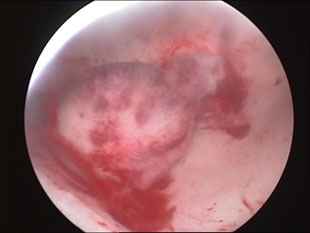
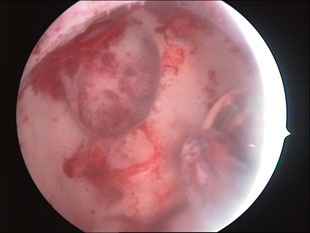
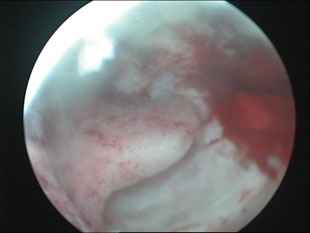
Hysteroscopic Transcervical Resection of the Endometrium (TCRE)
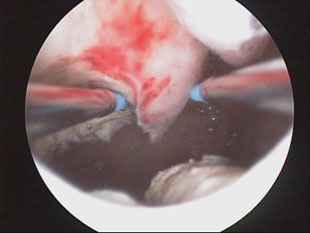
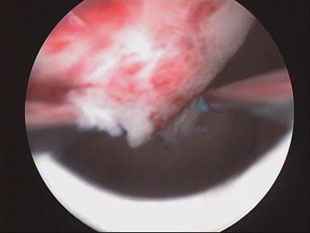
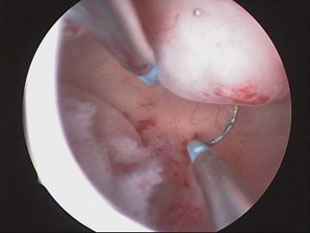
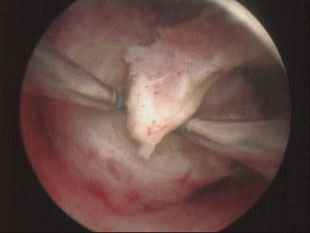
Intra Uterine Adhesions
